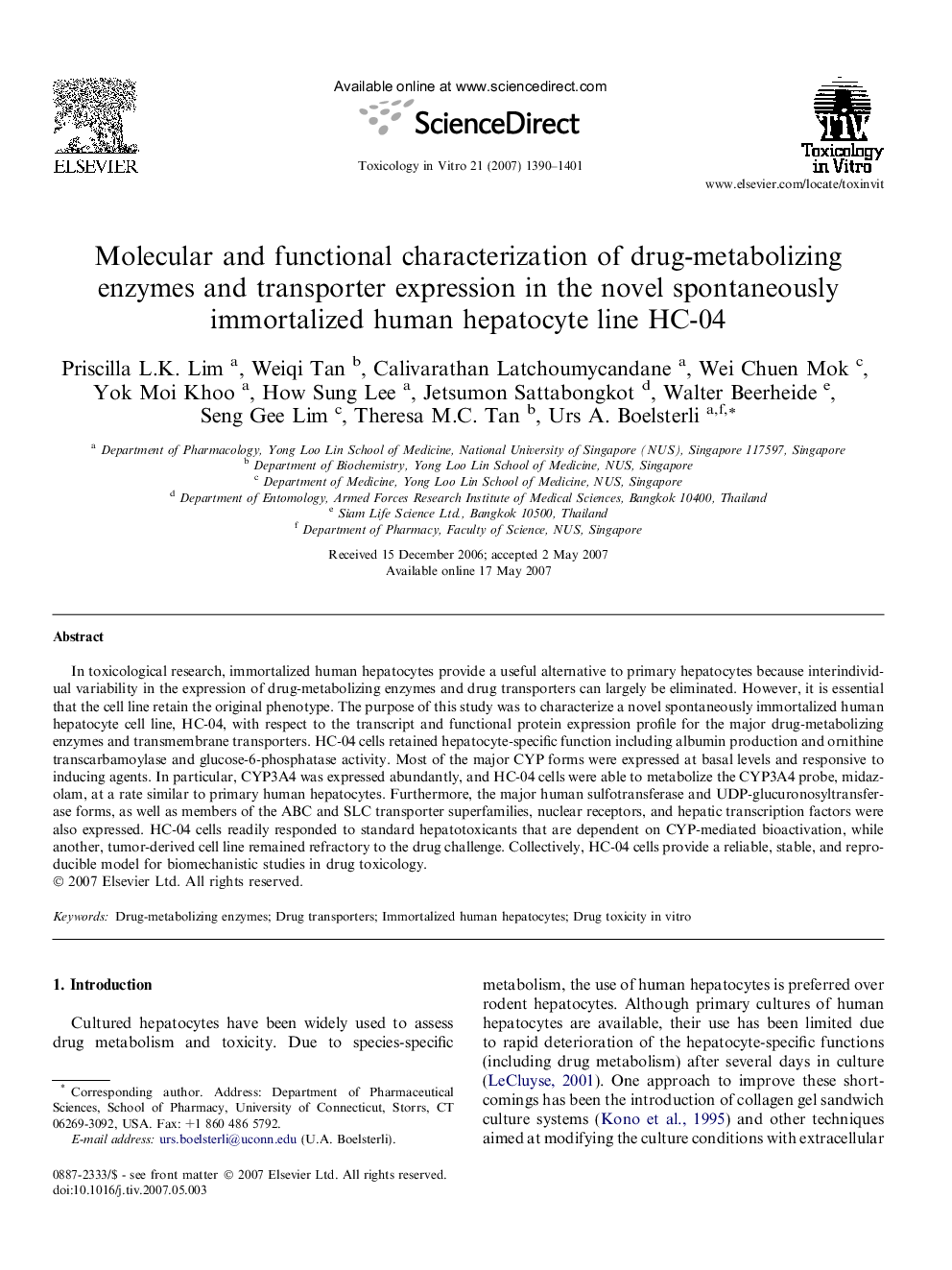| Article ID | Journal | Published Year | Pages | File Type |
|---|---|---|---|---|
| 2603696 | Toxicology in Vitro | 2007 | 12 Pages |
In toxicological research, immortalized human hepatocytes provide a useful alternative to primary hepatocytes because interindividual variability in the expression of drug-metabolizing enzymes and drug transporters can largely be eliminated. However, it is essential that the cell line retain the original phenotype. The purpose of this study was to characterize a novel spontaneously immortalized human hepatocyte cell line, HC-04, with respect to the transcript and functional protein expression profile for the major drug-metabolizing enzymes and transmembrane transporters. HC-04 cells retained hepatocyte-specific function including albumin production and ornithine transcarbamoylase and glucose-6-phosphatase activity. Most of the major CYP forms were expressed at basal levels and responsive to inducing agents. In particular, CYP3A4 was expressed abundantly, and HC-04 cells were able to metabolize the CYP3A4 probe, midazolam, at a rate similar to primary human hepatocytes. Furthermore, the major human sulfotransferase and UDP-glucuronosyltransferase forms, as well as members of the ABC and SLC transporter superfamilies, nuclear receptors, and hepatic transcription factors were also expressed. HC-04 cells readily responded to standard hepatotoxicants that are dependent on CYP-mediated bioactivation, while another, tumor-derived cell line remained refractory to the drug challenge. Collectively, HC-04 cells provide a reliable, stable, and reproducible model for biomechanistic studies in drug toxicology.
